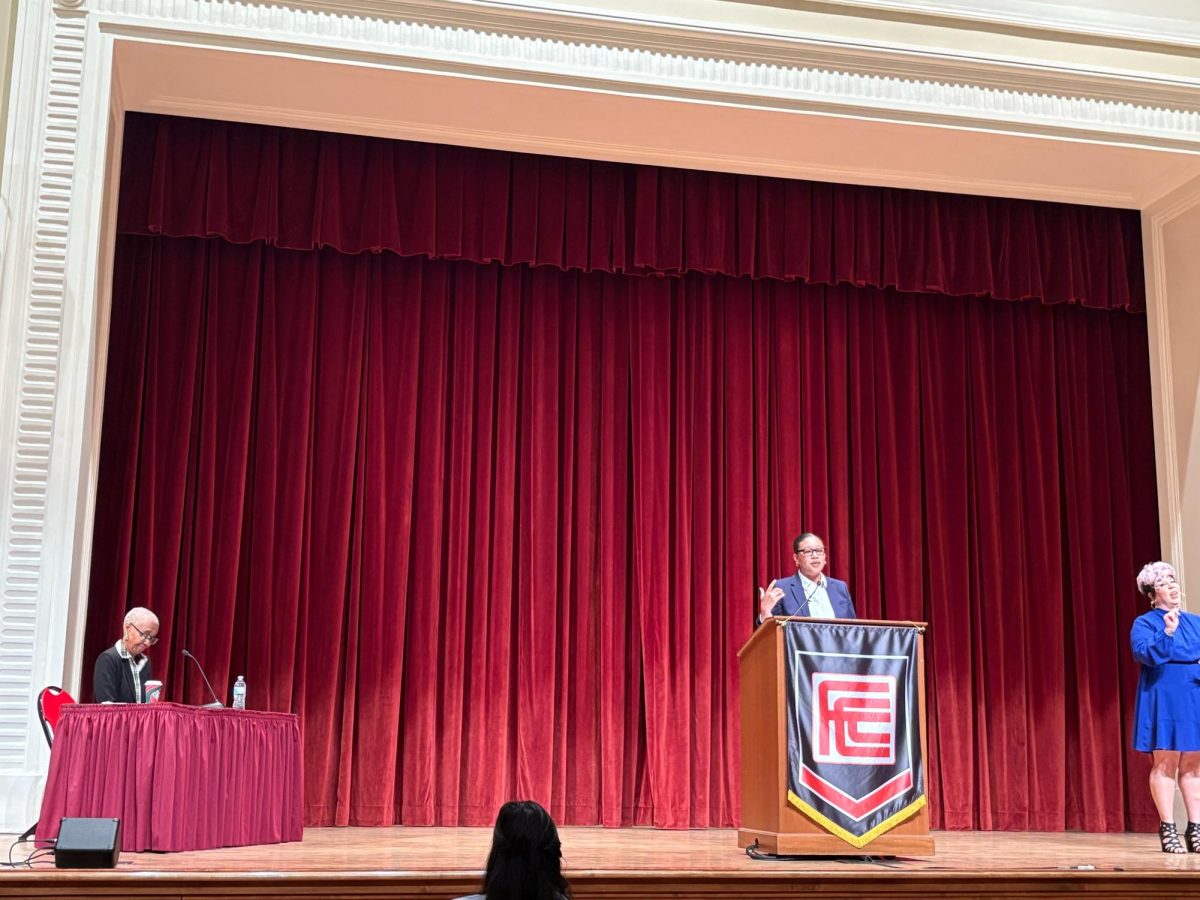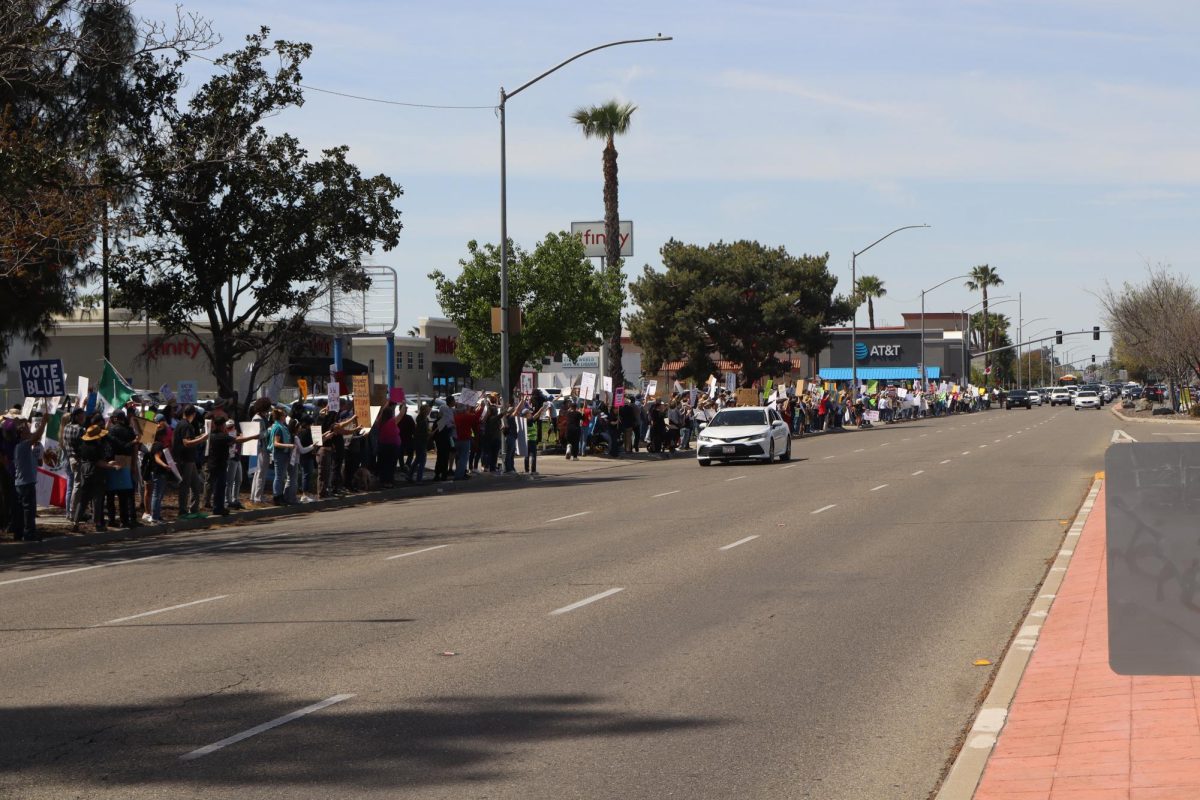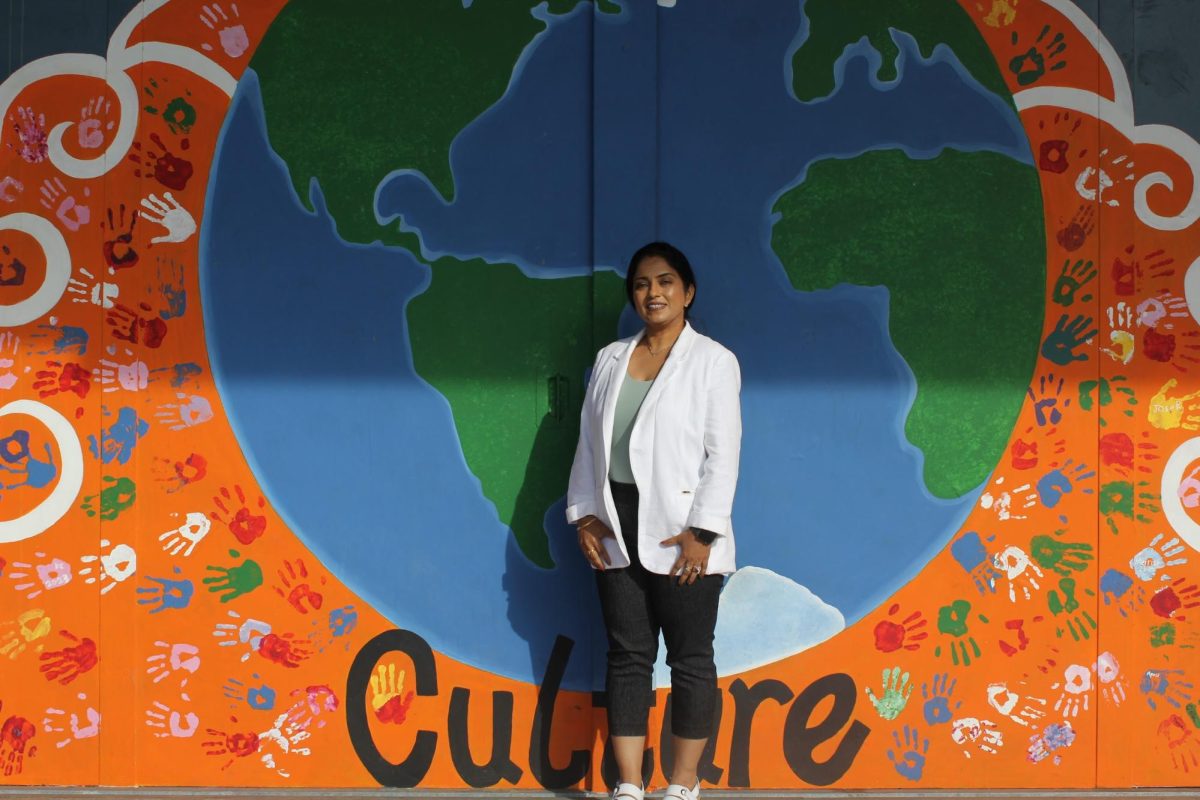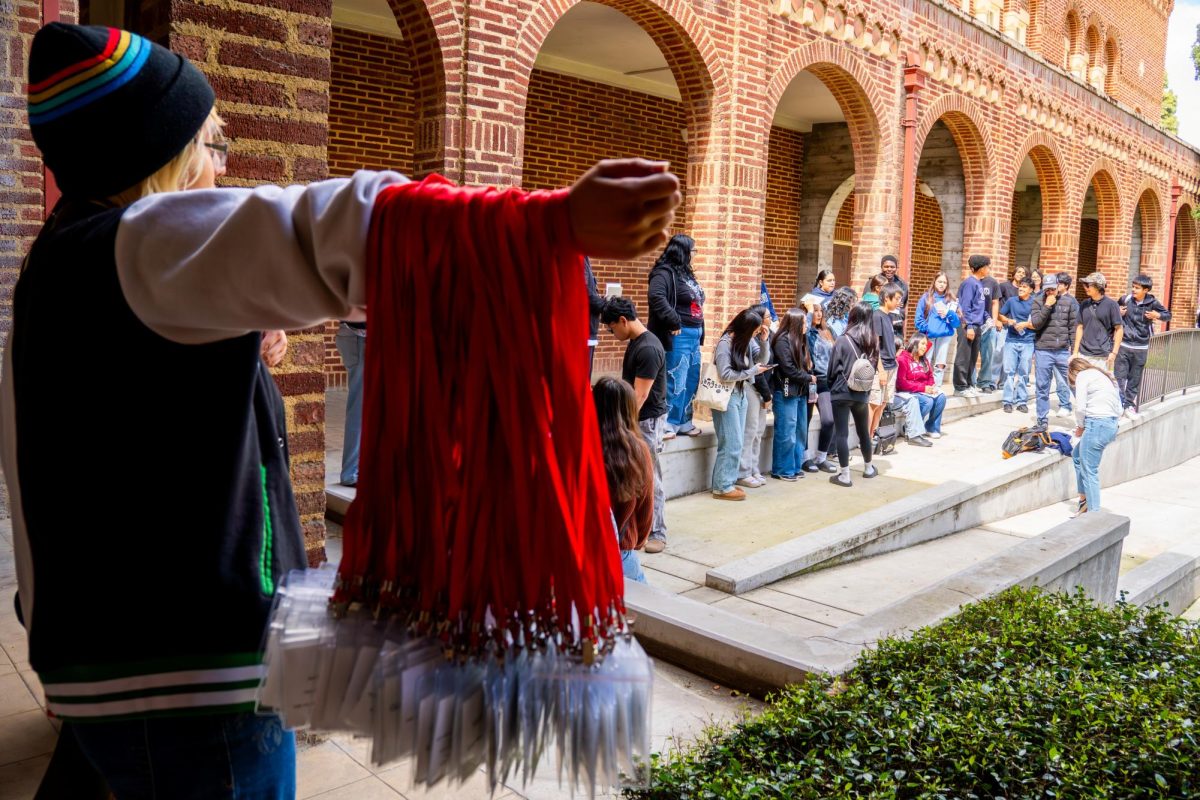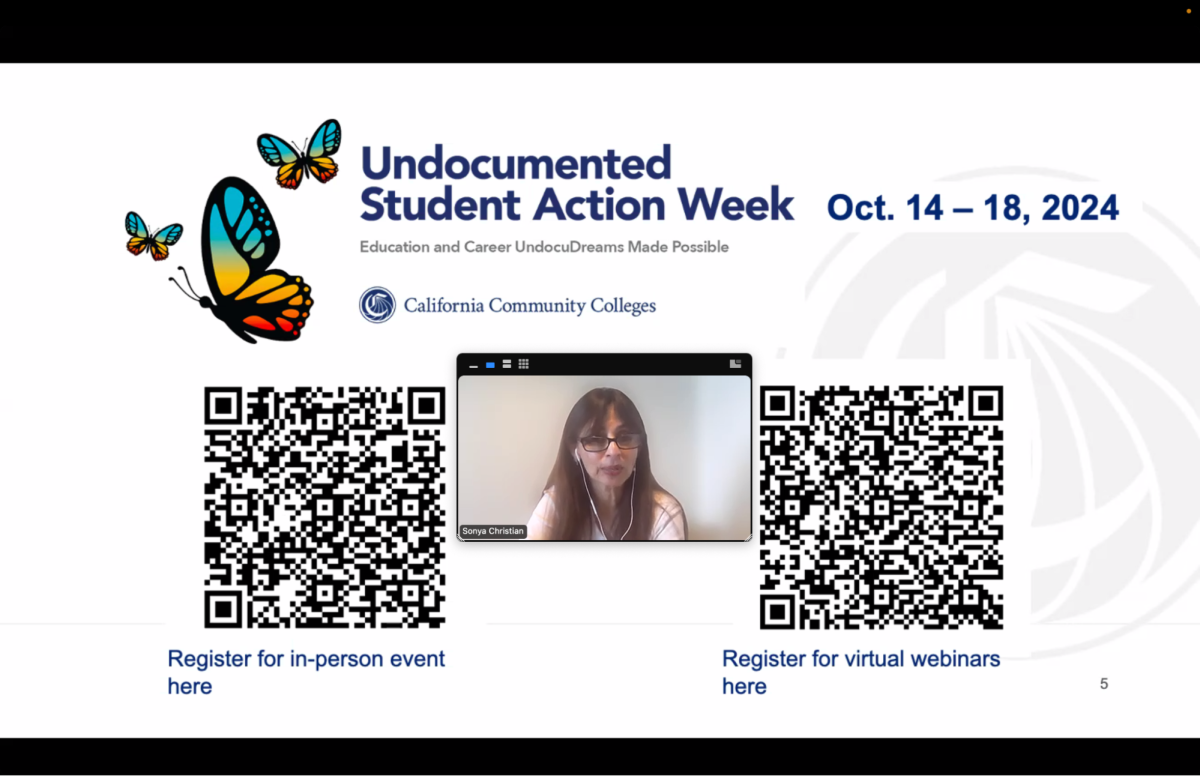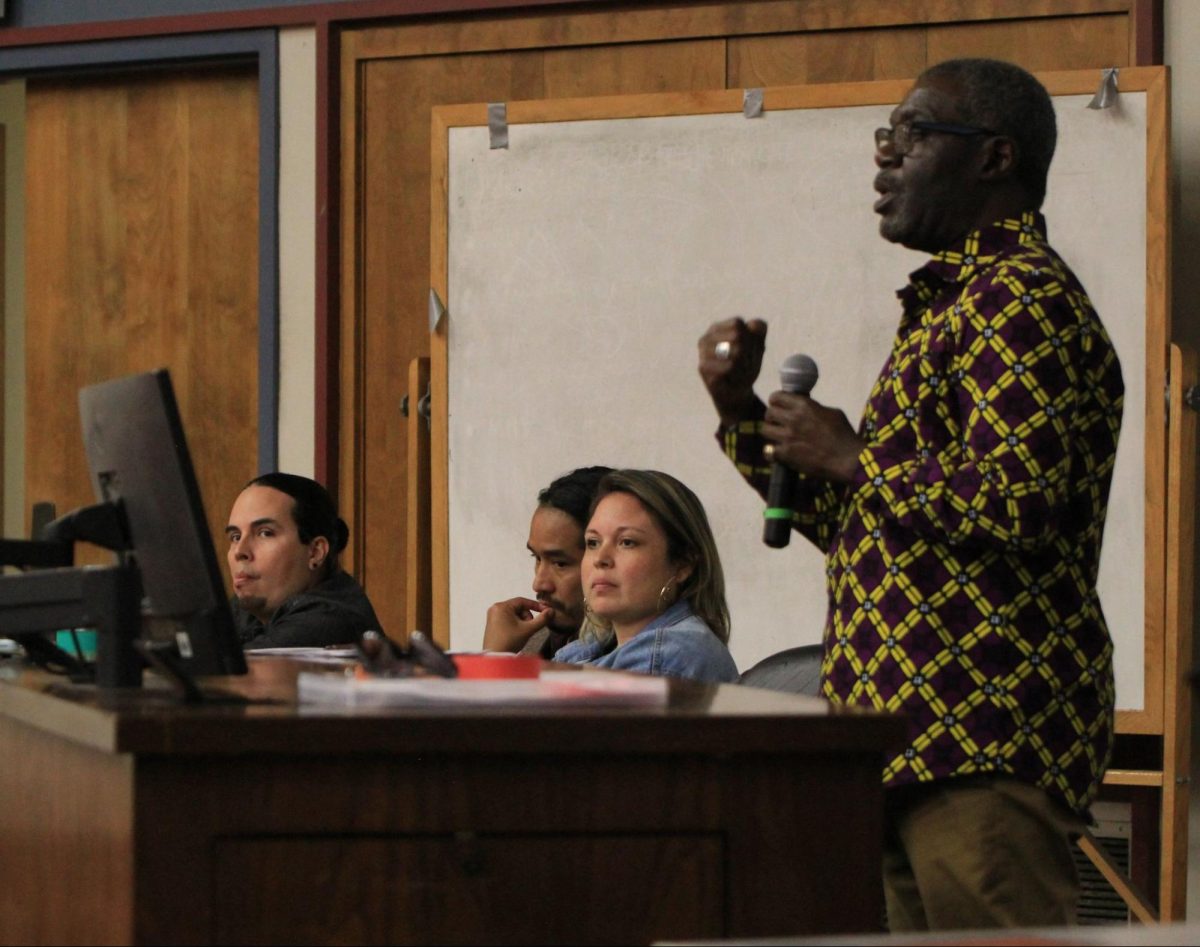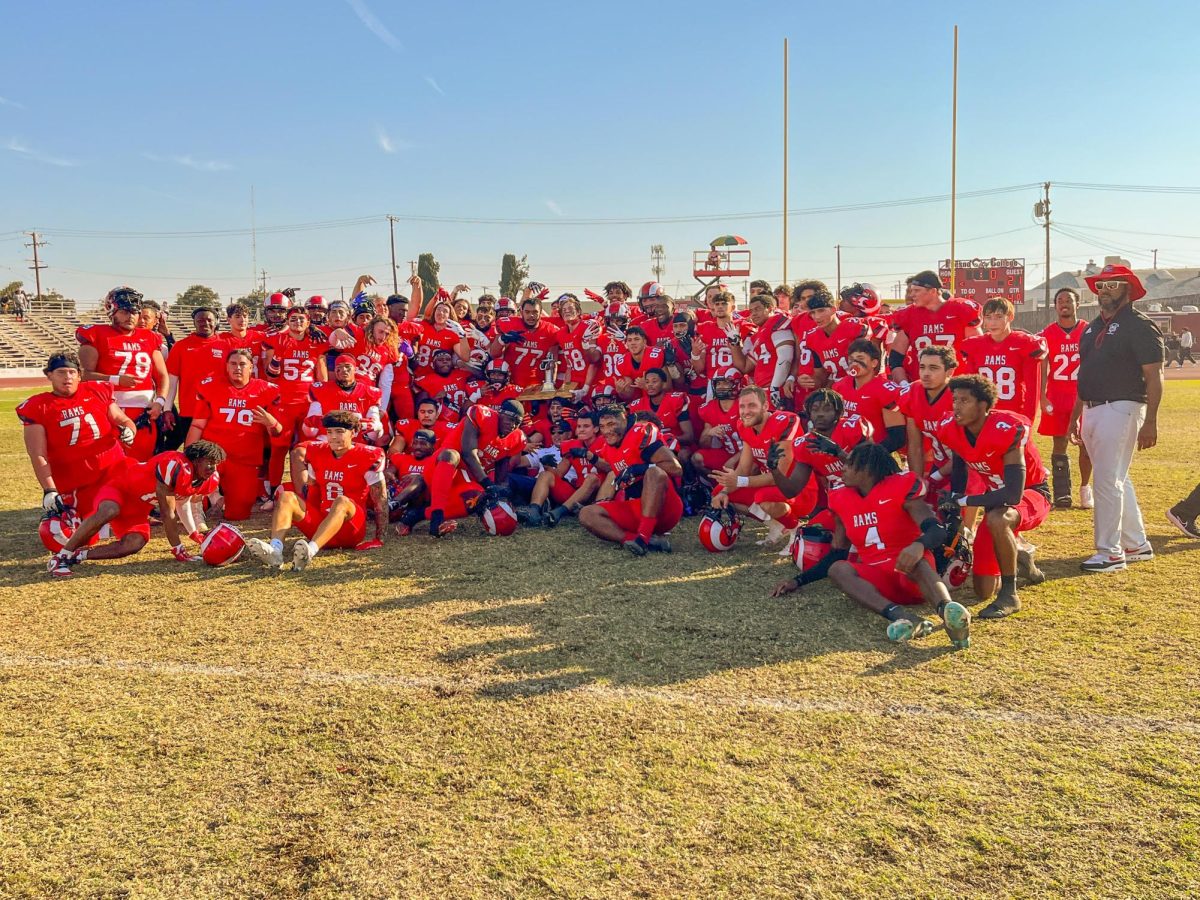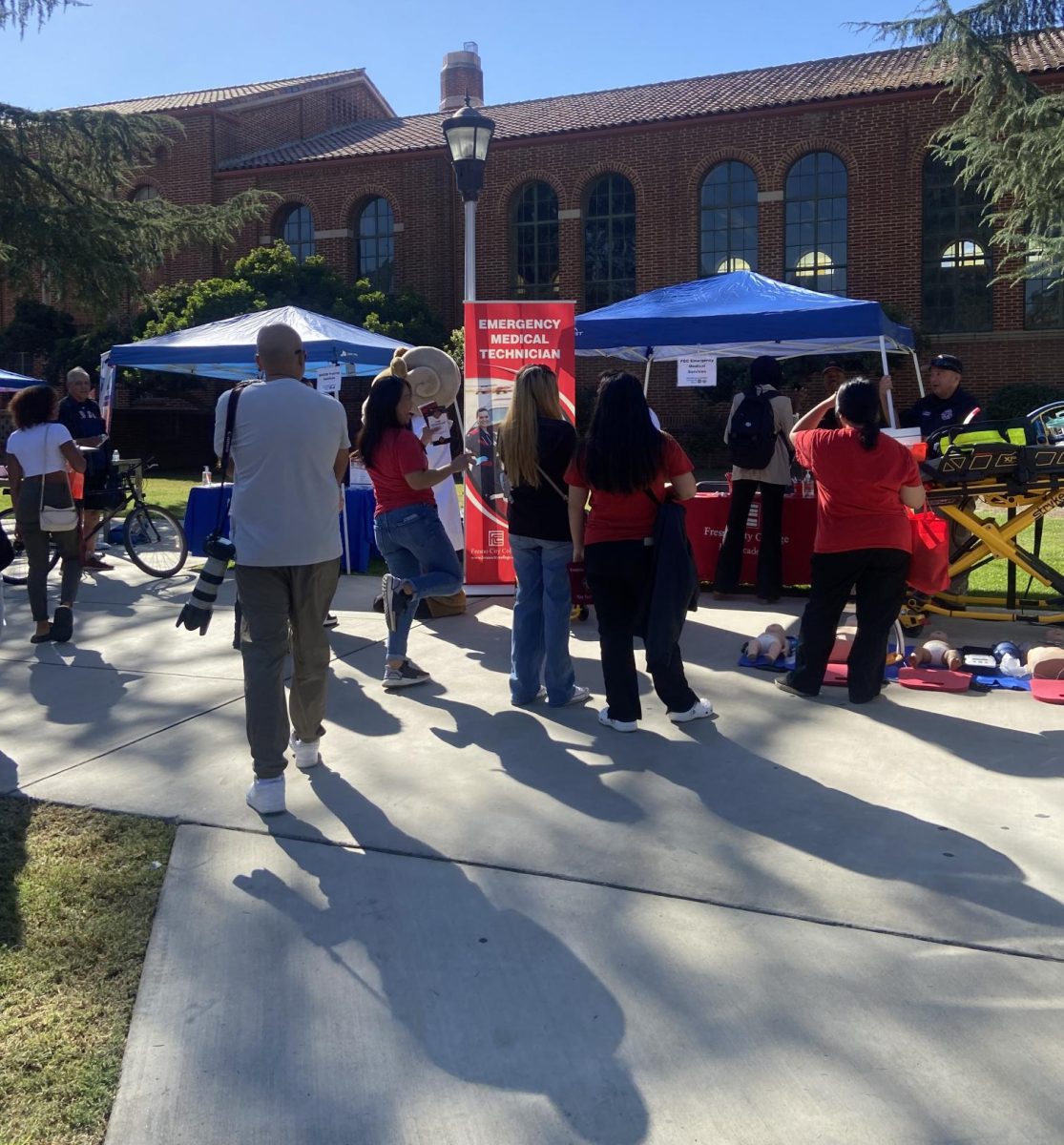The American Indian Studies department and the Native American Inter-Tribal Student Association sponsored a panel discussion on the commemoration of Christopher Columbus’ “discovery” of the Americas on Monday in the Old Administration Building Room 251 at Fresno City College.
“This event has been here for about eight years, since 2005,” said Bernard Navarro, instructor of American Indian studies. “I feel that it’s important that we gather here at least to say a few words about Columbus, about the Native American culture and to talk about how the world has changed as a result of what took place in 1492.”
Members of the panel included retired FCC instructor of African American Studies, Kehinde Solwazi and students David Alvarez (Yaqui), Gabby Estrada and Savannah Marquez (Dunlap). Eric Smith, a FCC student, opened the panel discussion with a ritual prayer and a moment of silence.
“Let’s have a moment of silence for us today because Columbus came along and killed us,” said Smith who walked about the room with a sage stick before beginning the prayer.
Navarro explained that the panel discussion was aimed at educating people and giving them a chance “to hear Native Americans speak.” He said that most people embrace stereotypes when thinking of Native Americans and that the panel wanted “to set the record straight.”
“We want to remember our ancestors; we want to remember what started in 1492,” said Navarro. “I always have people tell me ‘Oh; that was over 500 years ago; maybe it’s time to move on’ and my response is always, ‘It started 500 years ago and the genocide, the killing and the destruction of native cultures, is ongoing.’”
Navarro said that Columbus’ actions have caused a lot of damage requiring much healing that needs to be done. The panel discussion was a part of that healing process. This also impacts the way that Navarro sees America.
“The way that I look at America is that this is just one big Indian reservation. This is still Indian land. Fresno City College sits on Indian land. We’re here today, coming together in a good way on Indian Territory.”
The discussion began with a question: “When you think of this idea of Columbus as a federal holiday, what comes to mind?”
Marquez, FCC student and a member of the Dunlap tribe, said she has “mixed emotions” about the holiday. She explained that in school, she was taught that Columbus discovered America, but at home, her family understands that Native Americans occupied America first.
“How could a land be claimed if it was already occupied?” Marquez said. “We were here; we were occupying this land; therefore it cannot be taken from us, and it should not be claimed if people were already here living.”
Believing that the man that “destroyed lives, families and cultures” shouldn’t be praised, Marquez wonders where America would be without Columbus’s accidental trip. She had no doubt that the situation would be different.
“I believe 100 percent that it would still be our land and that he wouldn’t have anything to do with it and we’d still be who we were back in those days,” said Marquez.
“Today I’m not just here speaking for myself about what I believe but I speak on behalf of my people, on behalf of the indigenous people,” said Alvarez, an FCC student.
Expanding on Marquez’s beliefs, Alvarez said that children today are taught lies in school.
“Columbus day goes like this, ‘long ago, there lived a great white man, this man very brave, smart and determined,” Alvarez summarized the events of 1492 in his discussion. “He loved adventure. He sailed across the ocean and there were many islands with dark skinned people. He took possession of the islands and called the people Indians. His name was Christopher Columbus.’”
Solwazi contributed to the discussion by explaining that his relationship with Navarro has aided him in understanding more about “the indigenous people.” He states that he was brought up through the same “brainwashing, fairy tale” history as everyone else.
Solwazi told the audience that he believes that it is extremely important to know and understand history and that a person is not educated unless he or she does so.
“You can’t even say you’re educated until you know your own history and your own ancestors,” Solwazi said. “Don’t even claim that you’re educated. You’re just brainwashed and trained to operate in someone else’s interests.”
Gabby Estrada, the last panelist to speak, echoed the sentiments of her colleagues, discussing how Native Americans interpret the celebration of Columbus Day. According to Estrada, the information behind the Columbus Day holiday is inaccurate and the celebration of it is insulting.
“Columbus day is like celebrating our genocide,” said Estrada. “I know as a Native American that we despise that.”

